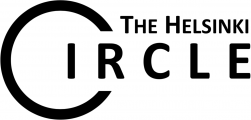Richard Rorty is infamous for his views on truth. Indeed, his insistence that truth is not, nor can it be, the goal of enquiry, and that truth is not an explanatory term (e.g. Rorty 1998), has caused some to call him a relativist, to say that he is anti-science, and so on. I wish to correct these views and alleviate some of the fears that stem from Rortyan ideas about truth. To that end, I am starting a series of posts dealing with Rorty and truth. First I will look at a dispute between Rorty and one of his fellow Pragmatists, James Conant.
In his contribution to Rorty and his Critics, Conant (2000) challenges Rorty’s views on truth, and argues that “the facts” are an indispensable part of any worthwhile epistemology. To do this, Conant takes up Wilson – the protagonist of George Orwell’s 1984. Winston has memories of events that the rest of his society, under the influence of Big Brother’s ruthless totalitarian regime, disagrees with. For Conant “Winston’s memories are the best evidence as to the facts” (Rorty 2000: 343). Here Conant has a view of evidence that is compatible with the standard epistemological one. But how does one compare one’s memories with “the facts”?
That Winston’s memories are a guide to the facts is evident to Orwell, and to us his readers, but this is simply because we have a better access to the facts about Orwell’s fictional world than any of its denizens do, or indeed can, have. So, Winston’s situation is far worse than ours. As Rorty puts it: “Winston’s memories [do not] bear an intrinsic mark of veridicality” (Rorty 2000: 343), and how could they? Our memories do not bear markers “reliable”, “true”, “unreliable”, “false”, and so on.
Furthermore “Winston’s tragedy is that he is in a position in which he will probably be led away, either by force or persuasion, from what we know to be true” (ibid.). A person in our society is usually better off: our society, unlike Winston’s, has a tendency to lead her away from what we know to be false. “But the difference between tragedy and good fortune is only recognizable from the outside – from where we are” (ibid.). But we cannot “rise above ourselves” to view things from “a view from nowhere”, such is our tragedy. We simply have to try to find better vantage points from which to view the world, and hope that our surroundings are not such that they lead us into systematic error.
For Rorty evidence and reasons need to be publically accessible (Rorty 1998). Here I think he is right in taking that anything, say memory, divorced of all intersubjectivity, cannot function as good evidence or persuasive reasons. Without such external marks from which to take our bearings how can we know that our memories, senses, and so on are reliable or not? That a claim is true, is of no help, if we have no way of checking that it is. And insofar as “truth” or “the facts” are not accessible to us, they cannot function as guiding norms for our pursuit of knowledge. The role we might naively think that such veridic concepts play is then taken up by a through and through epistemic concept: justification. But that is a story for another day.
References
Conant, James (2000): “Freedom, Cruelty and Truth: Rorty versus Orwell” in Robert B Brandom (ed.) Rorty and His Critics, Malden MA: Blackwell Publishers, pp. 268–341.
Rorty, Richard (1998): “Is Truth a Goal of Enquiry? Donald Davidson versus Crispin Wright” in Truth and Progress: Philosophical Papers, Cambridge: Cambridge University Press, pp. 19–42.
― (2000): “Response to James Conant” in Robert B Brandom (ed.) Rorty and His Critics, Malden MA: Blackwell Publishers, pp. 342–350.

One thought on “Rorty on Truth: Conant, Orwell, and the Facts”